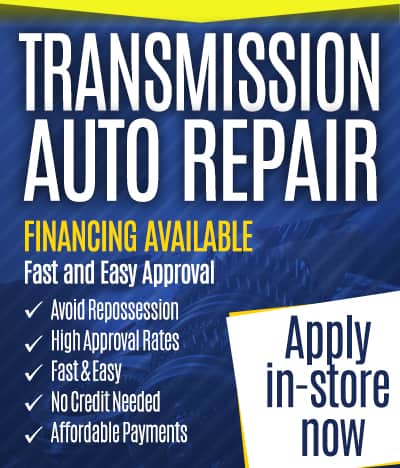Manual and automatic transmission cars differ in how their mechanisms work and how drivers interact with their components. You will likely be familiar with how the clutch is an essential component of manual transmissions that disconnects the engine from the transmission when the car is stopped. There is a need for a similar disconnection with automatic transmission cars, except that this process should be done without the clutch. This is where the torque converter comes into play.
The torque converter is an essential component of automatic vehicles, and if it is damaged, it can lead to further transmission damage. You may likely worry about this, especially if you are the new owner of your automatic vehicle. Not to worry, however, we have you sorted out. We look at the significant bad torque converter symptoms, so you know exactly what to look out for.
Let’s dive in.
What is the torque converter?
The torque converter is a critical component of automatic transmission vehicles. It works on the process of fluid coupling that is placed within a compact frame. This process allows you to keep your car idle while the engine is running through the process of applying a brake. However, they do not entirely cut off the engine from the transmission as the clutch does.
However, they make it so that you don’t have to apply much force to keep the car idle. This can be useful when your vehicle is stopped in traffic or at a red light. The torque converter is where you put the transmission fluid, which it uses to create hydraulic pressure. It is a sensitive component commonly associated with transmission problems in automatic vehicles when it fails.
We will discuss the significant symptoms of a bad torque converter so you can identify them and take your car to a transmission expert.
What are the signs of a bad torque converter?
1. Gear Slipping
It can feel like gear slipping should not be a thing in automatic vehicles since there is no gear changing involved from the driver. However, the transmission is still changing gears which means the gears themselves can still slip. This may be harder to notice since you are not directly changing the gear. However, you can still catch this by judging the sound when you accelerate and decelerate. When the car shifts to a particular gear and has trouble staying in it, this is what is known as gear slipping. You can notice this in the form of a distinct shuddering coming from the car, which is a sign of bad torque converter. We recommend taking your vehicle to the nearest technician so that they can pinpoint the exact reason why your car is vibrating like that.
2. Overheating Transmission
One of the symptoms of bad torque converter is an overheating transmission. You can tell that your transmission is overheating by a warning from your car, like how you would get an engine overheating warning. This is due to the sensitive temperature gauge connected to the transmission. Transmissions tend to heat up due to gear slipping as it ends up heating the transmission fluid within the torque converter. At one point, it can start boiling, which can cause the transmission to become overheated. An overheated transmission is a worrying sign as it can cause you not to shift gear or cause further internal damage inside the transmission. It is perilous to drive your car in such a case, and it is in your best interest to take the vehicle to a technician or transmission expert as soon as you can.
3. Contaminated Transmission Fluid
The transmission fluid is added to the torque converter to function by creating hydraulic pressure. Therefore, if the transmission fluid is of poor quality or has been contaminated, the torque converter will not be able to work correctly. Signs of transmission fluid contamination include it showing a dark or burnt color, sometimes with milkiness. Additionally, you may see debris or particles in the form of metal shavings within the transmission. If you see the transmission fluid is contaminated, you want it flushed out and replaced as soon as possible. Otherwise, you will see signs of bad torque converter and other damage to the transmission system. We recommend taking your vehicle to a transmission expert to assess and rectify any potential damage.
4. Problems with acceleration and speed
One of the signs of a failing torque converter is your car roughly accelerating or decelerating. The torque converter creates hydraulic pressure that allows you to accelerate. If the torque converted is not working correctly, this pressure created will be inconsistent, resulting in inconsistency when you are accelerating your vehicle. Sometimes, the car will accelerate suddenly or not at all, affecting your speed. You can tell there is rough acceleration when you feel the vehicle shuddering or not responding when you rev the car. Additionally, you can look at the RPM meter on the car’s dashboard and if it shows sudden jumps, this is likely one of the signs that your torque converter is failing. In such a case, you should take your car to be checked out immediately as it is perilous to drive your vehicle when the acceleration is not reliable. The likely culprit will be a faulty torque converter, and we recommend not driving the car until you fix it.
5. Unusual noises coming from the transmission system
Another sign that you possibly have a bad torque converter is strange noises coming out of your car. This is especially the case when you accelerate the vehicle and leave the engine running when it is stopped. This is because it is in these moments that the transmission and torque converter are most active. These sounds can be anything from a knocking, rattling or whining. It is best to get your car checked out when you hear these noises to figure out precisely what is wrong with your vehicle and deal with it. If these noises are ignored, then the underlying problem within your torque converter can get worse, which can cause the sounds to get louder while destroying the transmission system from the inside.To sum up
Automatic transmissions vary from their manual counterparts in various ways. One such way is the existence of the torque converter. The torque converter is an essential component of automatic vehicles as it creates the hydraulic pressure necessary for the gears to be changed automatically. Therefore, when the torque converter fails, it can lead to a whole host of problems in automatic cars. It is essential to get your vehicle checked out by a transmission expert who can rectify the issue in such a case. However, it is vital first to identify the signs of torque converter failing before you can take your car to a technician. In this article, we have looked at the various signs and symptoms of a failing torque converter so that you can swiftly get it rectified. This includes those that pertain to the gears, the transmission fluid and the transmission system itself.
We hope this article proves insightful and enables you to identify and rectify issues with your torque converter. Thank you for reading!































